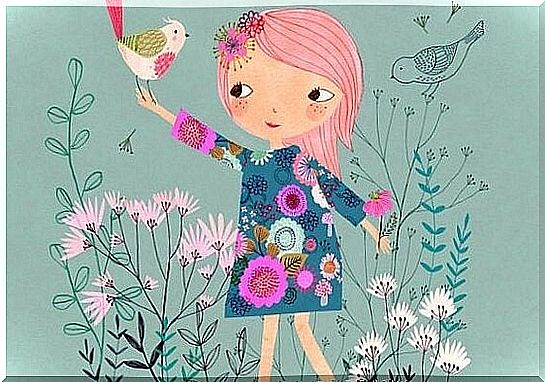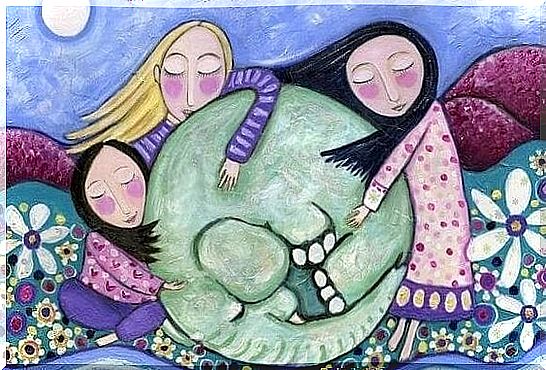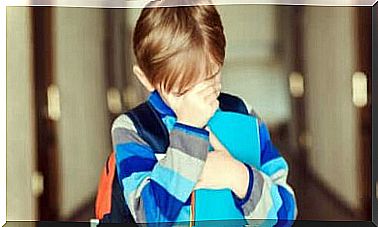4 Good Books For Teaching Children Emotional Intelligence

Teaching children emotional intelligence means giving them valuable and useful knowledge for life.
As parents , we have endless psycho-pedagogical resources at our disposal. By learning from these, we can meet the needs of all our children.
Of course, this does not mean that we should take in everything we hear. We do not have to apply every single method or theory.
However, it is a good idea to reflect on them and make use of those that suit each family’s needs.
With that in mind, one can safely say that this concept has created a revolution in the field of personal development, education and psychology in general, since Daniel Goleman’s pioneering book on the subject was published in the 1990s.
Parents should be aware of this theory and its implications, which offer a way to educate our children to become happier and more balanced individuals.
Today at Being a Mother , we take a look at four interesting books on this subject, which we are sure you will benefit from.
Teach children emotional intelligence – here are the books you need to read
1. Building Emotional Intelligence: Techniques to Cultivate Inner Strength in Children (Linda Lantieri and Daniel Goleman)

Daniel Goleman explains that by developing our children emotionally in the present, we offer them a better future. This simple, clear and above all practical book gives parents the concepts and tools to be able to achieve this.
One of the most interesting aspects of this book is that it provides the reader with a practical guide and an audiobook read by Goleman himself, which helps us teach our children about dealing with their emotions in daily life.
In addition, the children themselves can use this material and the tips he offers. This book is one of the best resources for teaching children emotional intelligence.
This is truly a sensational book. The author clearly emphasizes the importance of love, support and self-confidence as guidelines for this education.
The emotional resources and strategies we give our children should help them become respectful, sensitive individuals. People who are capable of knowing and appreciating themselves, taking care of their own self-esteem and feeling empathy for the people around them.
This book offers interesting tips for teachers, grandparents and family friends in addition to parents. A valuable resource for daily parenting.
Is your son or daughter one of those children who seems to be afraid of everything?
Many children go through a phase where they seem to see dark shadows behind every corner.
New fears appear: water, darkness, what’s in the closet or under the bed, fear of talking to new people, clowns, getting on the train…
- This is a normal process. However, it is the way we react that is the key to helping our children respond to these situations.
- James J. Crist, the author of this book, is a psychologist who specializes in childhood trauma. He has many years of experience in helping young people understand, rationalize and overcome their fears.
If your child is four or older, there is no doubt: this book is for you. The book begins by asking children a simple question: “How do you feel today?”
The Great Big Book of Feelings continues by exploring emotions such as happiness, sadness, lead, interest among others. Its simple phrases also encourage very young children to learn to identify and talk about their feelings.
This type of communication is, without a doubt, the best instrument for strengthening self-esteem, on the one hand, and an emotional dialogue on the other. Both are fundamental to a good family dynamic.

The book also contains interesting stories that parents can read to their children every night.
All in all, this is an engaging alternative for teaching children emotional intelligence. It will help our little ones to a good start in life.









